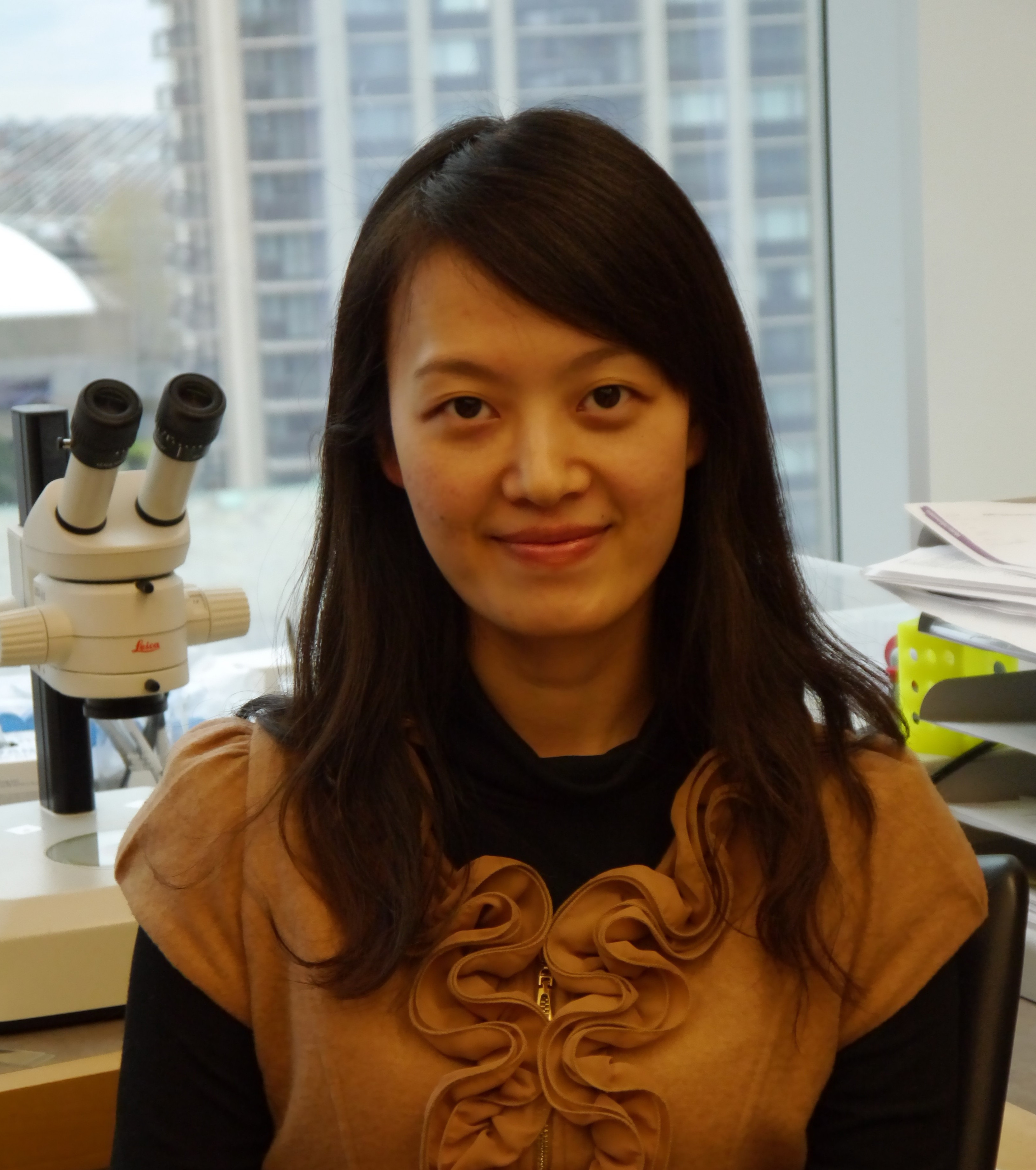
Ying Liu
Email: ying.liu(at)pku(dot)edu(dot)cn;
Telephone: +86-10-62766523
Lab Homepage: http://www.yinglab.org
Research Area:
The Liu lab has broad interests in exploring the molecular mechanisms that govern the maintenance of cellular homeostasis. Currently, we focus on two major directions: mitochondrial stress response and nutrient sensing mechanisms.
Proper maintenance of mitochondrial function is crucial for the survival of organisms. Organisms evolved stress response pathways to survey mitochondrial function and activate repair programs upon mitochondrial stress. Failure to sense or repair damaged mitochondria has been implicated in aging and numerous diseases such as cardiac dysfunction and neurodegenerative disorders. The goal of our research program is to combine the power of worm genetics and biochemistry, to understand and manipulate mitochondrial stress response pathways to promote the healthy survival of organisms.
In addition, we are actively exploring molecular mechanisms that enable organisms to sense nutrient availability, which could greatly affects organisms’ reproduction, lifespan and survival.
Representative publications:
1. Gao K, Li Y, Hu SM and Liu Y*. SUMO peptidase ULP-4 regulates mitochondrial UPR-mediated innate immunity and lifespan extension. eLife (2019) e41792
2. Ma C, Niu R, Huang T, Shao LW, Peng Y, Ding W, Wang Y, Jia G, He C, Li CY, He A and Liu Y*. N6-methyldeoxyadenine is a transgenerational epigenetic signal for mitochondrial stress adaptation. Nature Cell Biology (2018) doi: 10.1038/s41556-018-0238-5.
3. Chen J, Ou Y, Yang Y, Li W, Xu Y, Xie Y and Liu Y*. KLHL22 activates amino-acid-dependent mTORC1 signaling to promote tumorigenesis and ageing. Nature 557(2018) 585-589.
4. Chen J#, Ou Y#, Li Y, Hu S, Shao LW and Liu Y*. Metformin Extends C. elegansLifespan through Lysosomal Pathway. eLife 6 (2017) e31268.
5. Shao LW, Niu R and Liu Y*. Neuropeptide signals cell non-autonomous mitochondrial unfolded protein response. Cell Res. 11 (2016) 1182-1196. (cover story)
6. Berendzen K, Durieux J, Shao L, Tian Y, Kim H, Wolff S, Liu Y and Dillin A. Neuroendocrine coordination of mitochondrial stress signaling and proteostasis. Cell 166 (2016) 1553-1563.
7. Liu Y, Samuel B, Breen P, and Ruvkun G. Caenorhabditis elegans pathways that surveil and defend mitochondria. Nature 508 (2014) 406-410.
8. Liu Y, Tan H, Tian H, Liang C, Chen S and Liu Q. Autoantigen La promotes efficient RNAi, antiviral response and transposon silencing by facilitating multiple-turnover RISC catalysis. Mol. Cell 44 (2011) 502-508.
9. Ye X*, Huang N*, Liu Y, Paroo Z, Huerta C, Li P, Chen S, Liu Q and Zhang H. Structure of C3PO and mechanism of Human RISC activation. Nat. Struct. Mol. Biol. 18 (2011) 650-657.
10. Liu Y, Ye X, Jiang F, Liang C, Chen D, Peng J, Kinch L, Grishin N, Liu Q. C3PO, an endoribonuclease that promotes RNAi by facilitating RISC activation. Science 5941 (2009) 750-753.


